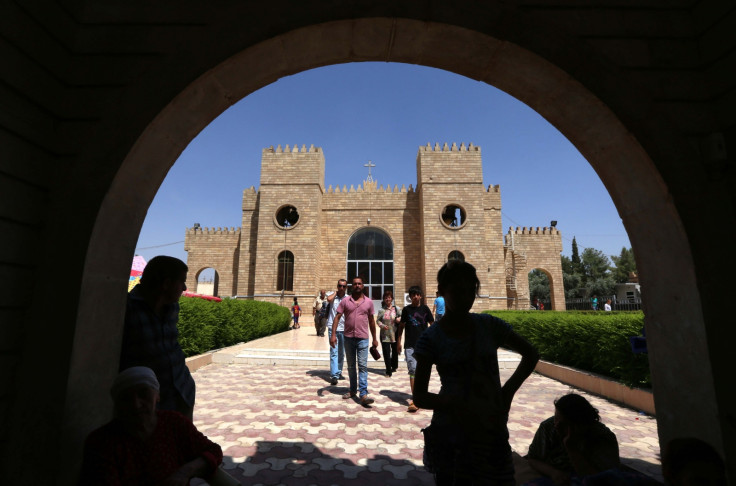Iraq Crisis: Aramaic Dialect Spoken By Jesus Under Threat as Islamic State Drives Out Christians

The ancient dialect generally agreed to have been spoken by Jesus Christ could die out as Iraqi Christians flee their homeland in face of the onslaught from Islamic State militants.
First spoken more than 3,000 years ago by the nomadic Arameans in what is now Syria, Aramaic went on to become the lingua franca of its time, spoken from India to Egypt.
But with Iraq's Christians now homeless and indigent, as they were driven out of the Nineveh plains of northern Iraq that had been their home for centuries, experts believe the language could be diluted and die out.
"The threat to the Christian Neo-Aramaic-speaking population of northern Iraq is very great," linguist Geoffrey Khan told Foreign Policy.
Khan has conducted a study of the Aramaic-speaking communities, and said that each village had a slightly different dialect.
"If the inhabitants of the villages are uprooted and thrown together in refugee camps or scattered in diaspora communities around the world, the dialects will inevitably die," he said.
Aramaic became the official language of the Assyrian empire, then flourished under the Babylonian empire, and the Persian empire of the sixth century BC.
Across the Middle East, new dialects of Aramaic sprang up.
In ancient Palestine, it gradually replaced spoken Hebrew.
It is the presumed mother tongue of Jesus, who in the Gospel of Matthew says on the cross, "Eli, Eli, lama sabachthani?" ("My God, my God, why hast thou forsaken me?") and is used in both Judaic and Christian sacred texts.
Communities speaking Aramaic survived across the region until World War 1, when Turkish nationalists perpetrated what is now known as the Assyrian genocide, murdering thousands of Aramaic-speaking Christians in eastern Turkey, and forcing them to flee into Iran and Iraq.
In the 1990s, estimates put the number of Aramaic speakers at 500,000, half of which were believed to be living in Iraq.
But with an estimated 200,000 now forced to flee towns including Qaraqosh, Tel Kepe, and Karamlesh, experts believe that the end could be at hand for the ancient tongue.
The unfolding tragedy "is reminiscent of the terrible events in the First World War," Khan added, which "led to the death of scores of Neo-Aramaic dialects of southeastern Turkey."
© Copyright IBTimes 2024. All rights reserved.






